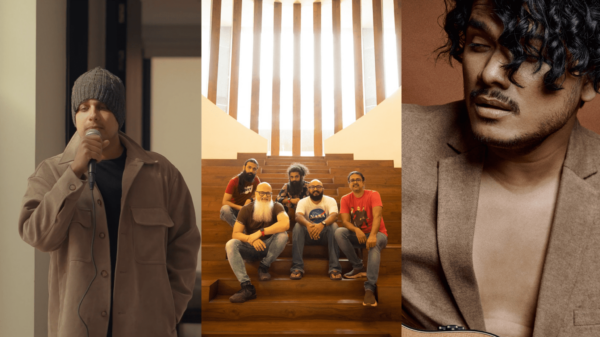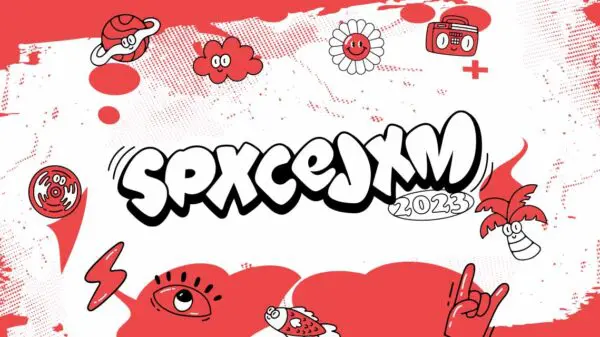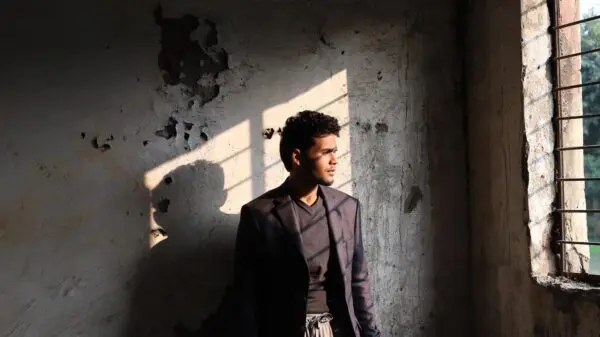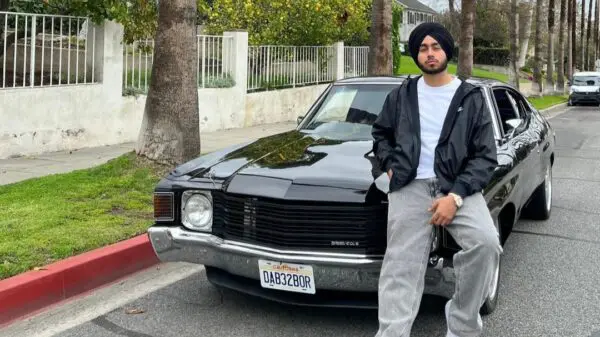Ali Saffudin is a poet. His first full-length release, aptly titled “Home Recordings (Vol. 1) saw the Kashmir-based musician’s quarantine scribblings laid bare in the form of a 10-track mixtape, that established his role as a prominent voice of protest from the valley – someone who could carry forward the indomitable spirit of the creatives who came before him, alongside his contemporaries. His latest release Wolivo is the musician’s most honest and vulnerable narration of his story and his reality as a young Kashmiri surviving in a turmoil-prone region. The record’s inherently political tone may be hard to digest for some, and that’s okay because not everything is meant to make you feel good. With all its flaws, shortcomings, and positive talking points, Wolivo is a hard-hitting rock record upholding the ethos of resistance and rebellion.

Released via Azadi Records, the album is conveyed through Kashmiri and runs for 50 mins, kicking off with “Wadiyo Mei” which is punchy and passionate, making space for Saffudin’s vocal prowess to bloom with all its colours. Painting a magnificent scenery of the valley through its lyrics, the song leaves you entranced in its vivacity. Saffudin is pugilistic in the title track of the album – “Wolivo, ready to fight against the agonizing pandemonium prevalent in the belligerent region. He calls for support for his cause, using heavy rock-oriented guitars, sonorous bass lines, and assertive vocals to convey his message. A protest anthem in itself “Wolivo” encapsulates the album’s radical disposition in its almost 3-minutes run-time.
“Jinki Wajah Se” commences with grungy, grainy, old-school radio-oriented vocals that evolve into buoyant, rap-like verses which the musician uses to express his stance on the current political scenario of the valley. The song is groovy with harsh and rugged rock instrumentals defining its soundscape. Although the build-up initially seems to resolve into a heavier climax, it somehow manages to fall off right at the edge of the outro rather unsatisfactorily.
“Zehni Ghulami”s gritty and robust textures could’ve made for a worthwhile rock track had it not been for the amateurish lead guitar parts and sloppy mix that hang like dead weights bulldozing its overall quality. The vocals and lead guitars sound a little isolated from the entire mix at certain parts, and even the instrumentals seem to overwhelm the vocals by the end of the track.
“Walo Ha” proudly flaunts folk flavours in its soundscape with the song itself being inspired by a protest poem originally penned by Peerzada ‘Mahjoor’ Ghulam Ahmad. Saffudin’s re-imagination of the piece sheds limelight on the rage of the Kashmiris that he evokes through his dramatic vocals. But the guitar solo right at the beginning of the outro gets somewhat overshadowed by the robustness of the rhythm guitars. The sudden drop of tempo in the outro section strikes a noteworthy contrast compared to the rapidity of the track.

With “Sleep Song”, the album dives into its schmaltzy colours, with mellow-toned guitar riffs glomming onto piano chords to create kaleidoscopic sonic layers. Saffudin croons about the relief brought about by sleep but antithetically his vocals fall off in the mix sounding unpolished and wavering. The song ends with delay-oriented vocals fading away in concentric waves which seem out-of-place and stick out like a sore thumb in the overall production of the track.
“Kab Talak” revives the album’s original rock palette before doing away with it more or less in the last three tracks of the album. Inspiring and passionate, the ditty is a reflection of the suppressed rage universally experienced by marginalized communities across the globe. Incorporating elements from hardcore punk and related styles, Saffudin creates an electrifying soundscape that makes you want to headbang along to it. But the lead guitars in the outro seemed to have gotten lost in the mix of overpowering rhythm guitars, bringing the song to a convoluted resolution.

Using his acoustic guitar and voice as a tool for voicing his protest in the last three tracks of Wolivo, Saffudin certifies his role as not only a rock composer but also a perceptive and adroit singer-songwriter. “Main Nahi Manta” is a rendition of one of the Nazms penned by Pakistani poet Habib Jalib. Saffudin’s version is sentimental, powerful, and inspiring that tugs at your heartstrings. “Fariyad” is spiritual in essence, using gentle sonic colours to highlight its soundscape. The post-production and piano embellishments provide depth to the track enmeshing with Saffudin’s heartfelt singing to create an electrifying song. I could almost imagine the song being played live in a stadium with thousands of people singing along to it. It reintroduces ebullient textures in the outro, that blend with its softer colours.
“Behta Gaya” although placid and hopeful, seemed a little unnecessarily long for a singer-songwriter tune. Saffudin chooses his words carefully in an attempt to celebrate the resilience displayed by thousands of Kashmiris in the face of turmoil. But at the same time, the 7+ minutes run-time of the song seems like an overkill where it could have been brought to an end more comprehensively.

Wolivo’s charisma speaks for itself when it comes to Ali Saffudin’s potential as a proficient songwriter and musician. Certainly, it has its shortfalls and imperfections but, in a way, they create more room for improvement that the musician can hope to achieve with persistent experience. As a singular voice speaking on behalf of thousands, Saffudin proves himself to be the flag-bearer of resistance music emerging from the valley’s homegrown music scene.





























